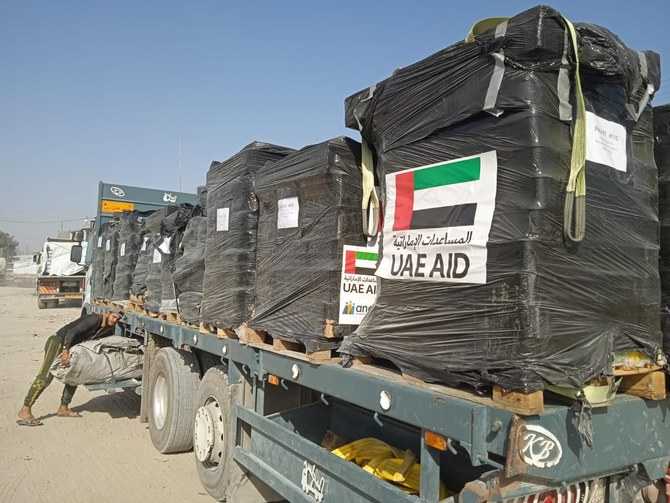RAMALLAH, West Bank: Israeli forces kept up a manhunt on Friday for a Palestinian who shot dead two soldiers in the occupied West Bank, as Prime Minister Benjamin Netanyahu faced right-wing pressure for a strong response.
Thursday’s shooting was the latest incident shattering months of relative calm in the West Bank, where 400,000 Israelis live in settlements alongside more than 2.5 million Palestinians.
It was the third deadly attack by Palestinian gunmen in the West Bank in two months and set off demonstrations by settler groups against Netanyahu, whose right-wing government depends on their support.
Israeli media speculated on Friday about the possibility of a new Palestinian “intifada,” or uprising, against Israel’s occupation of the West Bank.
In Thursday’s attack, a gunman got out of his car and opened fire on soldiers and others outside a settlement in the central West Bank, killing two and seriously injuring another two Israelis before fleeing.
In response the army locked down the city of Ramallah, home to secular Palestinian President Mahmoud Abbas, while calling in reinforcements.
Clashes between Palestinians and Israeli forces erupted in different parts of the West Bank, including inside Ramallah during army raids.
Settlers shouting for revenge threw stones at Palestinian vehicles, while an Arab bus driver was beaten by ultra-Orthodox Jews in the Modiin Illit settlement, according to Israeli media reports.
In overnight raids, the army said it arrested 40 Palestinians, most of them affiliated to the Islamist movement Hamas which has claimed responsibility for two recent shooting attacks.
It has not yet claimed Thursday’s attack, though Israeli officials point the finger of blame in its direction.
The army did not say it had made arrests linked directly to the latest attack.
At a checkpoint near the Beit El settlement on Friday morning, a soldier was moderately wounded after a man hit him with a rock before fleeing, the army said.
Friday threatened to be another tense day with Palestinian movements, including Hamas, calling for protests in the West Bank after weekly prayers.
Israel has controlled the West Bank since seizing it in a 1967 war.
Settlements are considered illegal by the international community and are seen as one of the greatest obstacles to peace, though Israel disputes this. Hamas, for its part, has controlled the Gaza Strip since seizing it from Abbas’ forces in 2007.
While Abbas’ Palestinian Authority has limited self-rule in parts of the West Bank, Hamas cells still operate in the territory.
On Thursday, Hamas claimed responsibility for two shooting attacks that killed three Israelis, including a baby. Hamas leader Ismail Haniyeh said on Thursday that the West Bank had “opened a new page” in the movement’s conflict with the Jewish state.
Netanyahu’s coalition government, which has only a one-seat majority in Parliament, relies on the support of pro-settler parties.
Right-wing protesters in Jerusalem late on Thursday booed Netanyahu, while an MP from the far-right Jewish Home urged him to close all West Bank roads to Palestinians or have “blood on his hands.”
Hugh Lovatt, an analyst at the European Council on Foreign Relations, said the situation was reminiscent to the buildup to the 2014 Gaza war.
“What adds further danger is that we are heading into elections in Israel in 2019, so Netanyahu will have to take a more forceful hand,” Lovatt told AFP.
“He has long run on his security credentials, saying he keeps Israel safe, and his only real challenge comes from the right.”
Netanyahu, whose Likud bloc heads the government, responded on Thursday by announcing new measures to support settlements, but Yediot Aharonot newspaper said he would need to respond forcefully.
“When the settler lobby raises an outcry, the Likud ministers break into a sweat,” it said.


























